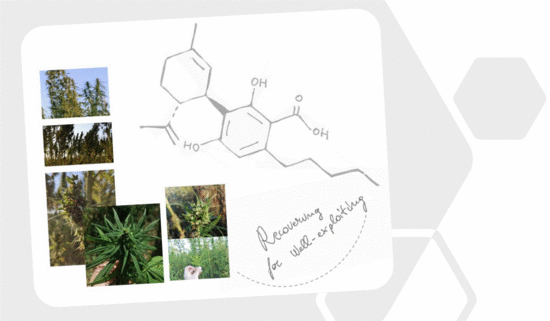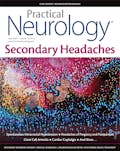
The effects of the active compound of cannabis, Δ9-tetrahydrocannabinol (THC), on gut motility and tone have been studied in several experimental models. It is unknown whether these effects correlate with improved healthcare utilization among cannabis users.
The purpose of this study is to evaluate the impact of cannabis use on inpatient length of stay and resource utilization for patients with a primary discharge diagnosis of IBS.
Cannabis users were less likely to have the following: upper gastrointestinal endoscopy (17.9% vs. 26.1%; adjusted odds ratio [aOR]: 0.51 [0.36 to 0.73]; p<0.001) and lower gastrointestinal endoscopy (21.1% vs. 28.7%; aOR: 0.54 [0.39 to 0.75]; p<0.001). Additionally, cannabis users had shorter length of stay (2.8 days vs. 3.6 days; p=0.004) and less total charges (US$20,388 vs. US$23,624). There was no difference in the frequency of CT abdomen performed.
Cannabis use may decrease inpatient healthcare utilization in IBS patients. These effects could possibly be through the effect of cannabis on the endocannabinoid system.”
https://pubmed.ncbi.nlm.nih.gov/32528750/
“Our study provides evidence to suggest that cannabis use may decrease healthcare utilization and costs among hospitalized patients with IBS. These findings are likely attributable to the effects of cannabis’ active compound, THC, on gastrointestinal motility and colonic compliance. The role of cannabis in the treatment for IBS has potential for significant impact at the individual and population level given the burden of IBS on individual quality of life and healthcare expenditures.”

 “Medical cannabis (MC) treatment for migraine is practically emerging, although sufficient clinical data are not available for this indication. This cross-sectional questionnaire-based study aimed to investigate the associations between phytocannabinoid treatment and migraine frequency.
“Medical cannabis (MC) treatment for migraine is practically emerging, although sufficient clinical data are not available for this indication. This cross-sectional questionnaire-based study aimed to investigate the associations between phytocannabinoid treatment and migraine frequency. “Moderate to severe spasticity is commonly reported in Multiple Sclerosis (MS) and its management is still a challenge. Cannabinoids were recently suggested as add-on therapy for the treatment of spasticity and chronic pain in MS but there is no conclusive scientific evidence on their safety, especially on cognition and over long periods.
“Moderate to severe spasticity is commonly reported in Multiple Sclerosis (MS) and its management is still a challenge. Cannabinoids were recently suggested as add-on therapy for the treatment of spasticity and chronic pain in MS but there is no conclusive scientific evidence on their safety, especially on cognition and over long periods. “Cannabidiolic acid (CBDA) is the main phytocannabinoid in fiber and seed-oil hemp (Cannabis sativa L.) plants, but its potential health-related capabilities have been masked for years by a greater scientific interest towards its neutral derivative cannabidiol (CBD). This review aims to collect from the literature and critically discuss all the information about this molecule, starting from its biosynthesis, and focusing on its bioactivity, as an anti-inflammatory, anti-emetic, anti-convulsant, and anti-cancerogenic drug. Furthermore, in the awareness that, despite its multiple bioactive effects, currently poor efforts have been made to achieve its reliable purification, herein, we propose a relatively simple, fast, and inexpensive procedure for its recovery from pollen of industrial hemp cultivars. Spectroscopic and spectrometric techniques allowed us to unequivocally identify pure isolated CBDA and to distinguish it from the constitutional isomer tetrahydrocannabinolic acid (THCA-A).”
“Cannabidiolic acid (CBDA) is the main phytocannabinoid in fiber and seed-oil hemp (Cannabis sativa L.) plants, but its potential health-related capabilities have been masked for years by a greater scientific interest towards its neutral derivative cannabidiol (CBD). This review aims to collect from the literature and critically discuss all the information about this molecule, starting from its biosynthesis, and focusing on its bioactivity, as an anti-inflammatory, anti-emetic, anti-convulsant, and anti-cancerogenic drug. Furthermore, in the awareness that, despite its multiple bioactive effects, currently poor efforts have been made to achieve its reliable purification, herein, we propose a relatively simple, fast, and inexpensive procedure for its recovery from pollen of industrial hemp cultivars. Spectroscopic and spectrometric techniques allowed us to unequivocally identify pure isolated CBDA and to distinguish it from the constitutional isomer tetrahydrocannabinolic acid (THCA-A).”
 “Identifying candidate drugs effective in the new coronavirus disease 2019 (Covid-19) is crucial,
“Identifying candidate drugs effective in the new coronavirus disease 2019 (Covid-19) is crucial,  “Obesity rates are increasing worldwide and there is a need for novel therapeutic treatment options.
“Obesity rates are increasing worldwide and there is a need for novel therapeutic treatment options. “A randomized double-blind clinical trial evaluating the efficacy of a medicinal cannabis formulation (ZTL-101; Zelira Therapeutics Ltd, Perth, Australia) for treating chronic insomnia showed that the therapy is effective and safe.
“A randomized double-blind clinical trial evaluating the efficacy of a medicinal cannabis formulation (ZTL-101; Zelira Therapeutics Ltd, Perth, Australia) for treating chronic insomnia showed that the therapy is effective and safe.
 “Cannabidiol (CBD) is a naturally occurring, non-psychotropic cannabinoid of the hemp plant Cannabis sativa L. and has been known to induce several physiological and pharmacological effects. While CBD is approved as a medicinal product subject to prescription, it is also widely sold over the counter (OTC) in the form of food supplements, cosmetics and electronic cigarette liquids. However, regulatory difficulties arise from its origin being a narcotic plant or its status as an unapproved novel food ingredient.
“Cannabidiol (CBD) is a naturally occurring, non-psychotropic cannabinoid of the hemp plant Cannabis sativa L. and has been known to induce several physiological and pharmacological effects. While CBD is approved as a medicinal product subject to prescription, it is also widely sold over the counter (OTC) in the form of food supplements, cosmetics and electronic cigarette liquids. However, regulatory difficulties arise from its origin being a narcotic plant or its status as an unapproved novel food ingredient.